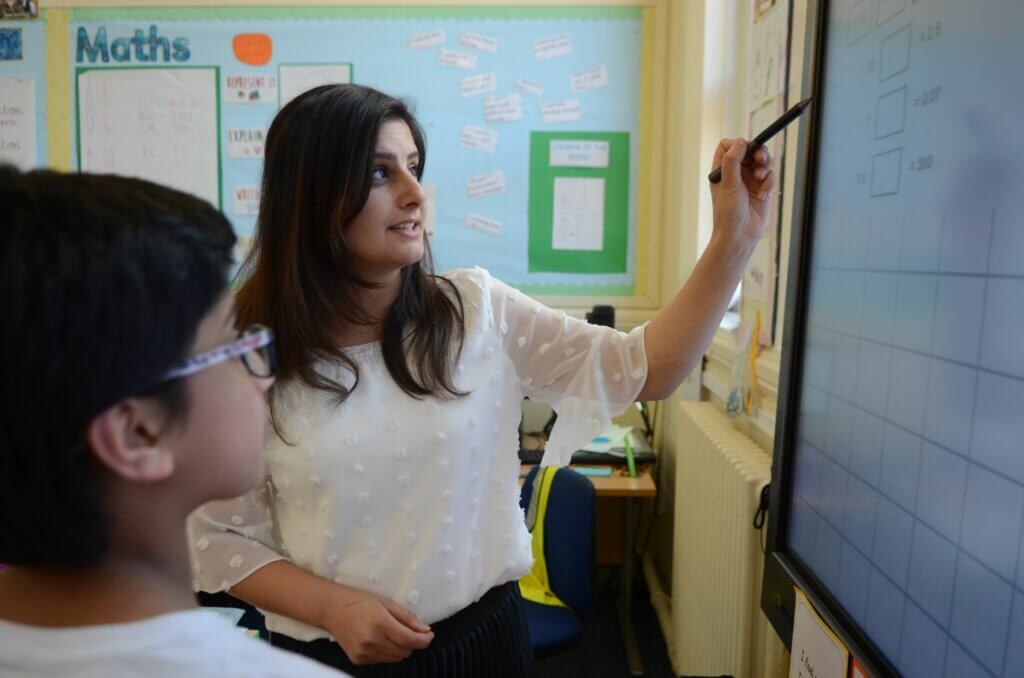New teacher training framework to launch in September 2025
This week, the government announced that a new teacher training framework will be rolled out in September 2025. This will combine the two existing models, which include the initial teacher training core content framework (CCF) and the early career framework (ECF), so that ‘teachers will get a more joined up development journey.’
This follows a review of the current frameworks, which found that their ‘similar but separate nature sometimes meant that there was unintentional repetition.’ The new initial teacher training and early career framework (ITTECF) will provide a more tailored experience based on the early career teacher’s (ECTs) development, subject, and context. Other updates will ensure the framework is underpinned by the latest evidence, with new content on how teachers should support pupils with special educational needs and disabilities (SEND), high quality oral language, and early cognitive development and children’s mental health.
Further changes are set to ‘place mentors at the centre of these reforms to teacher development’ with a view to embed the role of mentoring as integral within the profession. In response to concerns about mentor workload, the new framework will provide streamlined training and more detailed resources for mentors, ensuring they can effectively balance the demands of their role.
Professor Becky Francis, CEO of the Education Endowment Foundation (EEF), has endorsed the ITTECF, explaining that it will help to ensure teaching is ‘built upon a core body of knowledge and skills that describe best practice and are drawn from robust research.’ However, the University of Cambridge, as a centre for Initial Teacher Education (ITE) and education research, comments that ‘the evidence base for the framework is incomplete and thin.’ The university has called for the new framework to be implemented no earlier than September 2026 to allow for further consultation and revision.
Report highlights barriers faced by teachers of colour
The National Foundation for Education Research (NFER) has released a report to identify barriers and strategies to support the recruitment, retention, and progression of people of colour within the teaching workforce. This research was commissioned by Mission 44, a charitable foundation founded by Sir Lewis Hamilton.
The research found that 60% of schools in England had all-white teaching staff in 2021-22, with 86% having an all-white senior leadership team. Whilst people of colour are overrepresented at initial teacher training (ITT) application level, they are less likely to be accepted than their white counterparts. The report shows that retention is also lower for teachers of colour than for their white peers. Beyond high workload, their main reasons for leaving the profession include racial discrimination; disillusionment in their ability to make a difference for pupils from ethnic minority backgrounds; and a lack of progression opportunities.
Jason Arthur, CEO at Mission 44, says that ‘to build a more inclusive education system that works for all young people, the teaching workforce must be representative of the communities they seek to serve.’ The report makes a series of recommendations to improve diversity within the workforce, including calls for all ITT programmes to include anti-racist content in their curricula and considerations for alternative pathways to enter ITT for ethnic minorities who do not currently hold the required qualifications. Moreover, the report suggests the possibility of bursaries to support people of colour into leadership positions, as well as mentorship from teachers and leaders who are of the same race.
- One Education HR consultants can provide Equality and Diversity training for governors and all staff, giving you the knowledge and understanding to champion the principles of inclusion at every level of your school.
Contact us to discuss your requirements.
Ofsted calls for urgent reform to alternative provision
Ofsted and the Care Quality Commission (CQC) have completed a review of alternative provision (AP) arrangements, which finds inconsistent and ineffective practice due to a lack of national standards and a lack of clarity on responsibilities for AP commissioning and oversight. The report also reveals a lack of collaboration between agencies, particularly health partners who are often not involved in decision-making for individual AP placements.
To improve the outcomes of children in AP, the report makes a series of recommendations to improve commissioning and oversight of AP at both a strategic area-wide level and at the level of individual placements. These include clearer roles and responsibilities for local area partners, with greater clarity on how they should be involved in strategic planning. Further, the report demands greater consistency and rigour in decision-making around individual AP placements, as well as improved oversight of certain groups of children in AP. Ofsted also plans to increase its scrutiny of the use of AP and work alongside the Department for Education (DfE) to build a comprehensive understanding of strengths and concerns in this area.
Schools sought for ChatGPT trial to cut teacher workload
Since the launch of ChatGPT, there has been a growing demand for the use of generative artificial intelligence (AI) in schools. According to a survey from TeacherTapp in November, 42% of primary and secondary teachers have already used AI to help them with schoolwork. However, there is currently limited research into its impact in the classroom.
Secondary schools are now being invited to participate in a trial launched by the Education Endowment Foundation (EEF) to investigate whether ChatGPT can effectively reduce teachers’ working hours. Participants will be randomly selected to test the generative AI tool by planning and preparing resources for a Key Stage 3 science lesson. They will use Teaching with ChatGPT, an online toolkit that explains how to use the technology.
These lesson plans will be submitted to an independent panel of teachers, who will compare and assess the quality of AI-generated resources. Participants will also carry out surveys and online diary entries as part of the study. Secondary schools can sign up to take part through the EEF website. Participants will receive a thank you payment for contributing to the research.
Rob Robson, artificial intelligence lead at the Association for School and College Leaders (ASCL), welcomes the new research, but warns that AI, while valuable, cannot address the ‘profound challenges related to recruitment and retention’ which lie at the core of the workload crisis.
—
The future of education is full of promise and potential. One Education can help you stay ahead in this ever-changing professional landscape with a wide range of consultancy services, training and online resources.
Want to find out more? Get in touch today.















